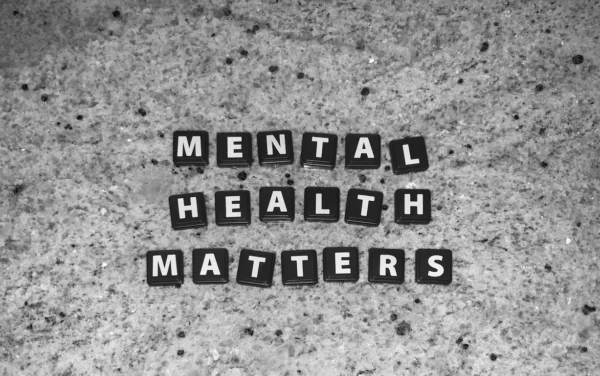
You’re not alone if you’ve ever felt overwhelmed by life’s challenges or struggled with negative emotions that seem to weigh you down persistently. Are you looking for counseling Napa? It’s common for individuals to face mental health concerns at some point. Taking the step to seek professional support can be a crucial part of your journey towards healing and personal growth.
Seeking counseling with a BE Psychology counseling psychologist in Dubai is a courageous step towards addressing these issues and improving your overall well-being. By engaging in therapy with a qualified professional, you can uncover the root causes of your difficulties and develop effective strategies to overcome them..
As you explore the benefits of seeking counseling for mental health concerns, remember that embarking on this journey is a testament to your strength and resilience.
Through counseling, you’ll have the opportunity to gain valuable insights into your feelings and behaviors while learning how to manage stress, strengthen relationships, navigate life transitions, boost self-esteem, and more.
The process may be challenging, but with each session comes increased self-awareness and personal growth, ultimately leading to a healthier version of yourself.
Overcoming anxiety and depression
You’ll be amazed how tackling anxiety and depression can improve your well-being and happiness. Seeking adult or child counselling for mental health concerns helps one better understand the root causes of their anxiety and depression, allowing them to develop strategies to counteract these negative emotions.
A counselor can provide you with techniques such as cognitive behavioral therapy (CBT), which has been proven effective in helping individuals overcome anxiety and depression. As you work through your sessions with a counselor, they will help you identify triggers for sadness, fear, or worry and teach you coping mechanisms to deal with these emotions effectively.
This process is essential to breaking the cycle of negative thoughts that often accompany anxiety and depression.
By recognizing these patterns and learning to disrupt them, you’ll be more resilient against future challenges that could trigger those emotions. The progress made during counseling sessions benefits your current emotional state and sets the foundation for long-lasting improvement in various aspects of life.
As you learn to manage anxiety and depression more effectively, this newfound strength will carry over into other areas, such as enhancing stress management skills, a crucial component in maintaining a balance between personal responsibilities and self-care practices.
With continued effort in developing these skills and professional guidance from your counselor, overcoming mental health concerns becomes an achievable goal that leads to lasting positive change.
Enhancing Stress Management Skills
Feeling overwhelmed by life’s challenges? Counseling can help you develop better stress management skills, making it easier to cope and thrive.
Through therapy, you’ll learn to recognize your stress triggers and discover new ways to approach difficult situations.
Your therapist will work with you in a safe environment to identify patterns of thinking and behavior contributing to stress, enabling you to make the necessary changes for a more balanced life.
Counseling offers several techniques for managing stress effectively:
- Mindfulness practices: Incorporating mindfulness into your daily routine can increase self-awareness and promote relaxation.
- Cognitive restructuring: This technique helps you identify negative thought patterns and replace them with healthier alternatives.
- Time management strategies: learning to prioritize tasks and set realistic goals can reduce feeling overwhelmed.
- Relaxation techniques: Deep breathing exercises, progressive muscle relaxation, and guided imagery can all help lower stress levels.
By enhancing your stress management skills through counseling, you will gain more control over your emotional well-being and improve various aspects of your life.
As a result, this newfound resilience against overwhelming situations will lead to stronger interpersonal relationships. With less anxiety clouding your mind, communication becomes more effective, opening up the possibility for deeper connections with others.
So why wait? Start reaping the benefits of counseling today, as it paves the way towards better mental health care while strengthening bonds with those around you.
Strengthening interpersonal relationships
Navigating the stormy seas of interpersonal relationships can be tough, but therapy offers a guiding light to help you forge stronger connections with those around you.
A therapist like Two Chairs can provide insights into your communication and conflict resolution styles, helping you better understand how your actions and words may impact others. They can also teach you valuable skills for asserting yourself without appearing aggressive or passive.
In counseling sessions, you’ll have the opportunity to explore various aspects of your relationships, such as trust, intimacy, and boundaries. Your therapist will guide you in understanding how past experiences might influence your present interactions and offer strategies for establishing healthier patterns moving forward.
By addressing underlying issues that could affect your relationships, therapy provides a safe space for personal growth, ultimately leading to improved connections with others.
As you work on strengthening interpersonal relationships through therapy, it’s essential to remember that progress may take time and that patience is key.
However, the support provided by a mental health professional aids in building resilience and prepares you for future challenges in all types of relationships, whether romantic partnerships, friendships, or familial bonds.
As these connections grow stronger and more stable, they will serve as an anchor when facing the inevitable life transitions.
Navigating life transitions
It’s natural to encounter various life transitions, and therapy can be a trusted compass guiding you through these changes with greater ease and confidence. Whether it’s starting a new job, moving to a new city, or experiencing the end of a relationship, these events can bring about feelings of uncertainty and anxiety.
A mental health professional can provide valuable support by helping you identify your strengths, develop coping strategies, and maintain perspective during these challenging times.
- Graduating from college: Transitioning from the structured environment of the school to the world of work or further education can feel overwhelming. Therapy offers a space for reflection on personal goals and values while providing tangible tools to navigate this change successfully.
- Becoming a parent: The incredible journey of parenthood comes with its unique challenges and concerns. Counseling offers guidance in building strong bonds with your child while ensuring you maintain self-care practices.
- Retirement: After years in the workforce, adjusting to retirement may bring up feelings of loss or confusion about one’s purpose. A therapist can help you explore ways to find meaning in this new chapter while fostering connections within your community.
As you conquer life transitions with counseling assistance, you likely notice increased self-esteem and confidence. This newfound sense of empowerment will make it easier for you to tackle any obstacles that come your way head-on, further strengthening your resilience in future endeavors.
In our next discussion about boosting self-esteem and confidence through counseling, we’ll dive deeper into how therapy helps build this empowering foundation for lasting personal growth.
Boosting self-esteem and confidence
Boosting your self-esteem and confidence through therapy can transform how you approach life’s challenges, making every hurdle more manageable and enjoyable. A counselor can help you identify the root causes of your insecurities and guide you in overcoming them.
By working closely with a mental health professional, you’ll better understand yourself, allowing for personal growth and an improved sense of self-worth. In therapy sessions, your counselor will use various techniques to help you challenge negative thought patterns that may be contributing to low self-esteem.

They’ll also encourage you to recognize and appreciate your strengths while teaching you the importance of setting realistic expectations for yourself. This newfound perspective can increase confidence in personal and professional settings, ultimately improving your overall quality of life.
As you continue working with a therapist, the positive changes in your self-esteem and confidence will naturally enhance other aspects of your mental health. Developing healthy coping strategies becomes much easier when approaching challenges from a place of inner strength and belief in yourself.
The next section will explore the role counseling plays in helping individuals develop effective coping strategies for managing stressors they encounter throughout their lives.
Developing Coping Strategies
When life throws curveballs your way, effective coping strategies can make all the difference in handling stress and maintaining a healthy mindset. Seeking counseling for mental health concerns is an excellent way to learn these techniques tailored to your needs.
A professional counselor will work with you to identify the sources of your stress or anxiety and guide you through various approaches to managing them effectively.
One important aspect of developing coping strategies is understanding that everyone’s experience is unique and that what works for one person may not be as effective for another.
By working with a counselor, you’ll have the opportunity to explore different methods such as mindfulness, deep breathing exercises, journaling, or even physical activities like yoga or running. Your therapist will help you find what resonates best with you while ensuring that it aligns with evidence-based practices.
As you begin to implement these new coping skills into your everyday life, it’s essential to remember that change takes time, and that practice makes perfect.
Be patient with yourself and trust in the process because mastering these techniques will ultimately lead to greater resilience and emotional well-being in both short-term challenges and long-term personal growth.
With newfound coping mechanisms under your belt, let’s explore how seeking counseling can aid in gaining personal insight and self-awareness.
Gaining personal insight and self-awareness
Imagine diving headfirst into the depths of your mind, uncovering hidden truths and treasures about yourself that you never knew existed. That’s what gaining personal insight and self-awareness through therapy can do for you.
Counseling provides a safe space to explore your thoughts, emotions, and behaviors in a non-judgmental environment.
With the guidance of a skilled therapist, you can begin to understand patterns in your life that may be causing distress or holding you back from reaching your full potential. Some areas where counseling helps improve personal insight and self-awareness include:
- Identifying emotional triggers: Understanding the events or situations that cause strong emotions can help you develop healthier responses.
- Recognizing thought patterns: Recognizing recurring negative thoughts allows you to challenge them with more positive perspectives.
- Discovering strengths and weaknesses: Knowing what skills and qualities are unique to yourself enables growth in both personal and professional aspects of life.
As your self-awareness expands through therapy sessions, it empowers you to take control over your mental health by making informed decisions about how best to cope with daily stressors.
The newfound understanding of your inner workings will boost your confidence and improve relationships as communication becomes more authentic from a place of genuine self-knowledge.
Embrace this journey towards deeper introspection; it’s an investment in yourself, fostering resilience against future challenges while paving the way toward living life more fully on your terms.
Conclusion
So, don’t be afraid to take a step towards seeking counseling for your mental health concerns. Like a lighthouse guiding ships through stormy seas, it can help you navigate the complexities of life and relationships.
Remember, counseling helps you overcome challenges and gives you essential tools to lead a happier and more fulfilling life.
Give yourself permission to grow and heal; you’re worth it!
